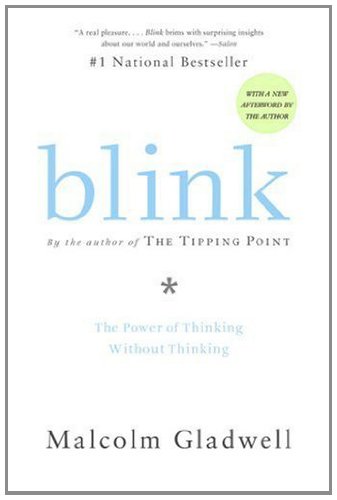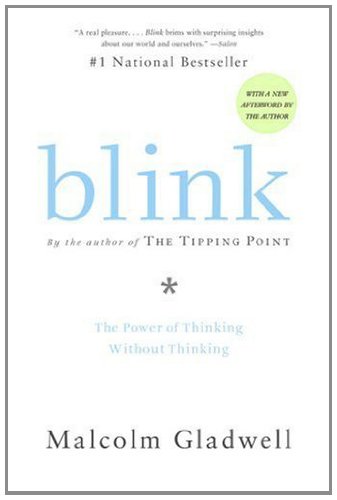
In his landmark bestseller The Tipping Point, Malcolm Gladwell redefined how we understand the world around us. Now, in Blink, he revolutionizes the way we understand the world within.
Blink is a book about how we think without thinking, about choices that seem to be made in an instant-in the blink of an eye-that actually aren’t as simple as they seem. Why are some people brilliant decision makers, while others are consistently inept? Why do some people follow their instincts and win, while others end up stumbling into error? How do our brains really work-in the office, in the classroom, in the kitchen, and in the bedroom? And why are the best decisions often those that are impossible to explain to others?
In Blink we meet the psychologist who has learned to predict whether a marriage will last, based on a few minutes of observing a couple; the tennis coach who knows when a player will double-fault before the racket even makes contact with the ball; the antiquities experts who recognize a fake at a glance. Here, too, are great failures of “blink”: the election of Warren Harding; “New Coke”; and the shooting of Amadou Diallo by police.
Blink reveals that great decision makers aren’t those who process the most information or spend the most time deliberating, but those who have perfected the art of “thin-slicing”-filtering the very few factors that matter from an overwhelming number of variables.Blink is about the first two seconds of looking–the decisive glance that knows in an instant. Gladwell, the best-selling author of The Tipping Point, campaigns for snap judgments and mind reading with a gift for translating research into splendid storytelling. Building his case with scenes from a marriage, heart attack triage, speed dating, choking on the golf course, selling cars, and military maneuvers, he persuades readers to think small and focus on the meaning of “thin slices” of behavior. The key is to rely on our “adaptive unconscious”–a 24/7 mental valet–that provides us with instant and sophisticated information to warn of danger, read a stranger, or react to a new idea.
Gladwell includes caveats about leaping to conclusions: marketers can manipulate our first impressions, high arousal moments make us “mind blind,” focusing on the wrong cue leaves us vulnerable to “the Warren Harding Effect” (i.e., voting for a handsome but hapless president). In a provocative chapter that exposes the “dark side of blink,” he illuminates the failure of rapid cognition in the tragic stakeout and murder of Amadou Diallo in the Bronx. He underlines studies about autism, facial reading and cardio uptick to urge training that enhances high-stakes decision-making. In this brilliant, cage-rattling book, one can only wish for a thicker slice of Gladwell’s ideas about what Blink Camp might look like. –Barbara Mackoff

